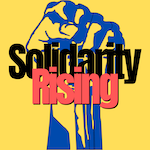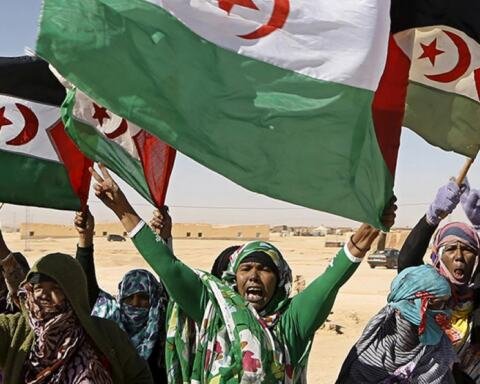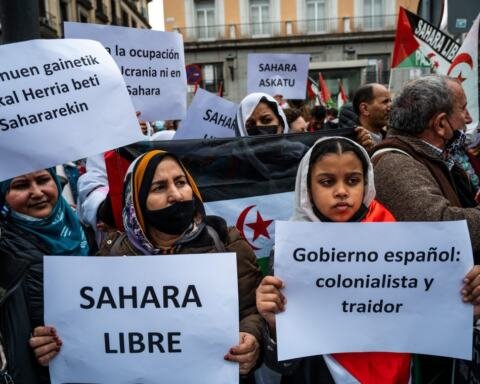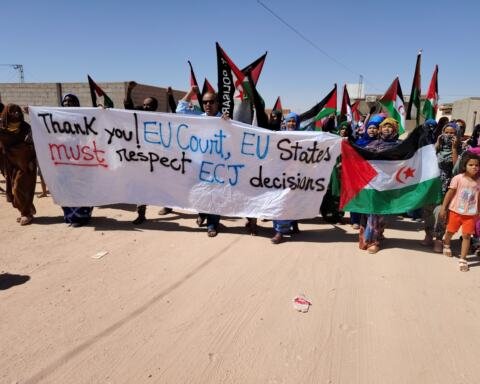The heat of the day soft ened, and we began to stir from our midday slumbers. Thirsty for air, we emerged from the tent to resume the morning’s abandoned labors. It was nearly the end of my month-long sojourn with a family of camel herders in the pasturelands that my hosts called, in the accent of the Hassaniya dialect of Arabic, the badīah. Having traveled a few weeks previously from the refugee camps where my hosts usually resided, now that I was in the pasturelands, I understood those refugees who longed from the refugee camps for the calm of herding. Any sense of tranquility in the pasturelands was interwoven, though, with the thrill of being out of the harsh Algerian ḥamādah desert, where the refugee camps were located, and in Western Sahara itself, the territory on which the refugee community looked as its homeland.
Full book
Sovereignty-in-Exile-A-Saharan-Liberation-Movement-Governs-Wilson-A.-Z-LibrarySupport our work
Support our work
Support our work with a one-off or monthly donation
AuthorAlice WilsonYear2016Pages313LanguageEnglish
Share via
Related resources
The Western Sahara Dispute: A Cautionary Tale for Peacebuilders
The UN and MINURSO have succeeded neither inconducting a referendum nor in…
Western Sahara as a Hybrid of a Parastate and a State-in-Exile: (Extra)territoriality and the Small Print of Sovereignty in a Context of Frozen Conflict
Within the liminal universe of parastates, what makes Western Sahara/SADR…
The Front Polisario Verdict and the Gap Between the EU’s Trade Treatment of Western Sahara and Its Treatment of the Occupied Palestinian Territories
Morocco’s control over Western Sahara and Israel’s control of the West Bank…



